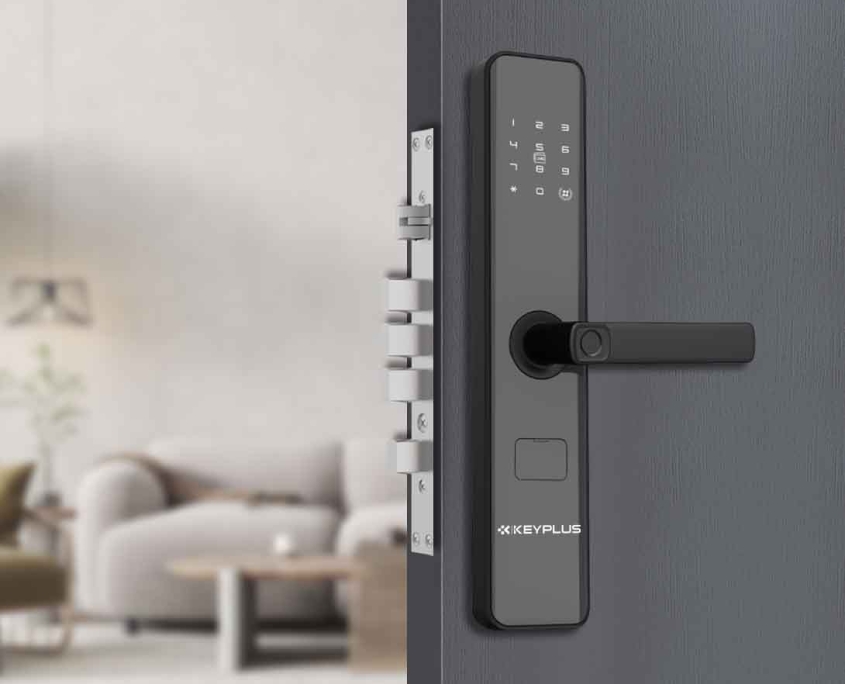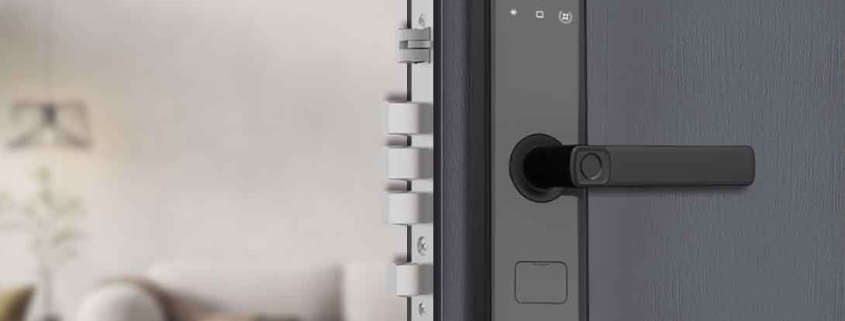Do Smart Locks Need Internet?
Smart locks are becoming a must-have for modern American homes, offering keyless entry, remote access, and seamless integration with other smart devices. But one common question many homeowners have is: Do smart locks need internet to work?
The short answer is: It depends. Some smart locks require Wi-Fi for full functionality, while others use Bluetooth or Z-Wave and can operate offline. In this guide, we’ll break down how different smart locks connect, whether internet is necessary, and what features you might lose without it.
How Do Smart Locks Connect? (Wi-Fi, Bluetooth, Z-Wave, Zigbee)
Smart locks use different wireless technologies to communicate with your phone, smart home hub, or other devices. Here’s how each connection type works:
1. Wi-Fi Smart Locks (Require Internet)
-
Pros:
-
Can be controlled remotely from anywhere via an app.
-
Often support voice control (Alexa, Google Assistant).
-
Receive real-time notifications (e.g., when someone unlocks the door).
-
-
Cons:
-
Require a stable Wi-Fi connection.
-
May drain battery faster than Bluetooth locks.
-
Potential security risks if your network is unsecured.
-
-
Best for: People who want full remote access and smart home integration.
-
Examples: August Wi-Fi Smart Lock, Schlage Encode
2. Bluetooth Smart Locks (No Internet Needed)
-
Pros:
-
Work without internet—just pair with your phone nearby.
-
More energy-efficient than Wi-Fi locks.
-
Generally more secure (no risk of remote hacking).
-
-
Cons:
-
No remote access (must be within Bluetooth range, usually 30-50 ft).
-
Limited smart home compatibility (may not work with Alexa/Google).
-
-
Best for: People who mainly want keyless entry at home (no need for remote control).
3. Z-Wave & Zigbee Smart Locks (Need a Hub, Not Direct Internet)
-
Pros:
-
Low power consumption (better battery life).
-
More secure and reliable than Wi-Fi.
-
Can work without internet if using a local hub.
-
-
Cons:
-
Requires a separate smart home hub.
-
Remote access only works if the hub is internet-connected.
-
-
Best for: Smart home enthusiasts who already have a hub.

Do Smart Locks Need Internet to Work?
When Internet is REQUIRED:
-
For remote access (e.g., locking/unlocking from your office).
-
For voice control (Alexa, Google Assistant, Siri).
-
For real-time alerts (e.g., “Your front door was unlocked at 3 PM”).
-
For firmware updates (security patches and new features).
When Internet is NOT Needed:
-
Basic keyless entry (fingerprint, keypad, Bluetooth unlocking).
-
Manual operation (most smart locks still have a physical key backup).
-
Local automation (if using a hub like SmartThings without internet).
What Happens If Your Internet Goes Down?
If your smart lock relies on Wi-Fi and your internet cuts out:
-
You lose remote access (can’t lock/unlock from afar).
-
Voice commands won’t work.
-
But local features still function (keypad, Bluetooth, physical key).
Pro Tip: If you want uninterrupted smart lock access, consider a dual-connection lock (e.g., Wi-Fi + Bluetooth or Z-Wave).
Which Type of Smart Lock is Best for You?
1. Get a Wi-Fi Smart Lock If You…
Want remote access (e.g., letting in a dog walker while at work).
Use voice assistants (Alexa, Google, Siri).
Don’t mind replacing batteries more often.
2. Get a Bluetooth Smart Lock If You…
Only need keyless entry at home (no remote access).
Prefer longer battery life.
Want a simpler, more secure option.
3. Get a Z-Wave/Zigbee Smart Lock If You…
Already have a smart home hub.
Want reliable automation (e.g., “Lock door when I leave”).
Prefer lower power usage.
Security & Privacy Concerns
Are Wi-Fi Smart Locks Hackable?
While rare, poorly secured Wi-Fi locks can be vulnerable. To stay safe:
-
Use strong passwords & two-factor authentication (2FA).
-
Keep firmware updated.
-
Avoid cheap, no-name brands with weak encryption.
Do Smart Locks Store My Data?
Most reputable brands use end-to-end encryption and don’t store access logs indefinitely. Always check the privacy policy before buying.
Final Verdict: Do You Need Internet for a Smart Lock?
-
No internet needed if you only want keyless entry at home (Bluetooth locks work fine).
-
Internet required if you want remote access, voice control, or alerts.
-
Z-Wave/Zigbee locks offer a middle ground—hub-dependent but not always internet-reliant.
If you travel often or want full smart home integration, a Wi-Fi smart lock is the best choice. But if you just hate carrying keys, a Bluetooth model will do the job without needing Wi-Fi.
What’s your preference—Wi-Fi, Bluetooth, or Z-Wave?



